Our live coverage of the Nobel Peace Prize has ended. You can read more on this story here.
Nobel Peace Prize won by Belarusian activist, Ukrainian and Russian human rights organizations
By Kara Fox
World leaders are applauding the Nobel Prize winning "artisans of peace"
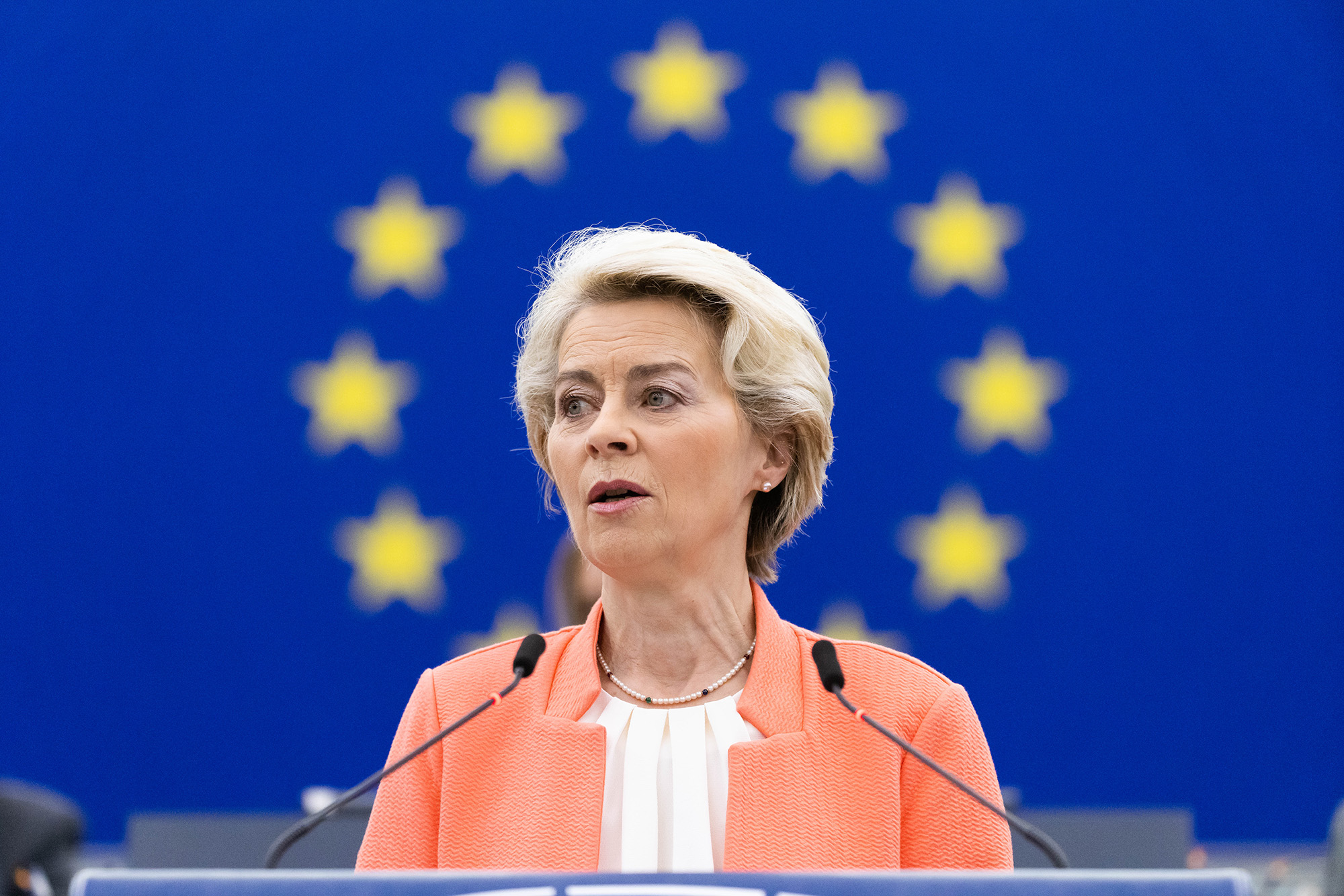
International reaction is pouring in for the winners of this year's prize.
European Commission President Ursula von der Leyen applauded the "outstanding courage of the women and men standing against autocracy."
Writing on Twitter, von der Leyen said: "They show the true power of civil society in the fight for democracy. Tell their stories. Share their engagement. Help make the world a freer place."
French President Emmanuel Macron tweeted that the Nobel committee had honored "the unwavering defenders of human rights in Europe."
"Artisans of peace, they know they can count on France's support," Macron said.
NATO Secretary General Jens Stoltenberg also congratulated the winners and tweeted a message of support.
"The right to speak truth to power is fundamental to free and open societies," he said.
Belarusian opposition politician Sviatlana Tsikhanouskaya, who was forced into exile in Lithuania after running against strongman leader and Putin ally Alexander Lukashenko in an August 2020 election denounced by the international community as neither free nor fair, also extended her congratulations to Bialiatski.
“Congratulations to Belarusian human rights defender & political prisoner Ales Bialiatski for receiving the 2022 #NobelPeacePrize. The prize is an important recognition for all Belarusians fighting for freedom & democracy,” she said in a tweet.
“All political prisoners must be released without delay,” she added.
Russian human rights organization Memorial 'is alive and will stay alive"
From CNN's Katya Krebs
Even though Russia's Supreme Court shut down Memorial International last December, the group set up a new organization -- that includes old and new staff -- in exile.
"Memorial is alive and will stay alive," the group told CNN.
Anastasia Garina, Executive Director of the Memorial Human Rights Center said in a statement that winning the Nobel Peace Prize caught the group off guard.
“The news of receiving the Nobel Prize was completely unexpected for us and caught us in the middle of the working day," she said, adding "of course we are very pleased."
Garina said that the award reinforces how important their work is.
"This is probably one of the most significant recognitions in the world of the importance of what we do. This means that many people believe that we are on the right track, that our work is necessary and important. This supports us incredibly in a situation where Russian civil society has fallen into dark times and when our longstanding efforts to protect human rights in the Russian Federation seem to have gone to pieces.
"We continue to work, we are restoring the team after the liquidation of the legal entity this spring, we are launching new projects and, of course, it is important for us to know that this is not in vain.”
Meanwhile in Russia on Friday a court case is underway, where authorities have lodged a petition to seize the group's former premises.
Human rights defenders awarded amid Putin's war
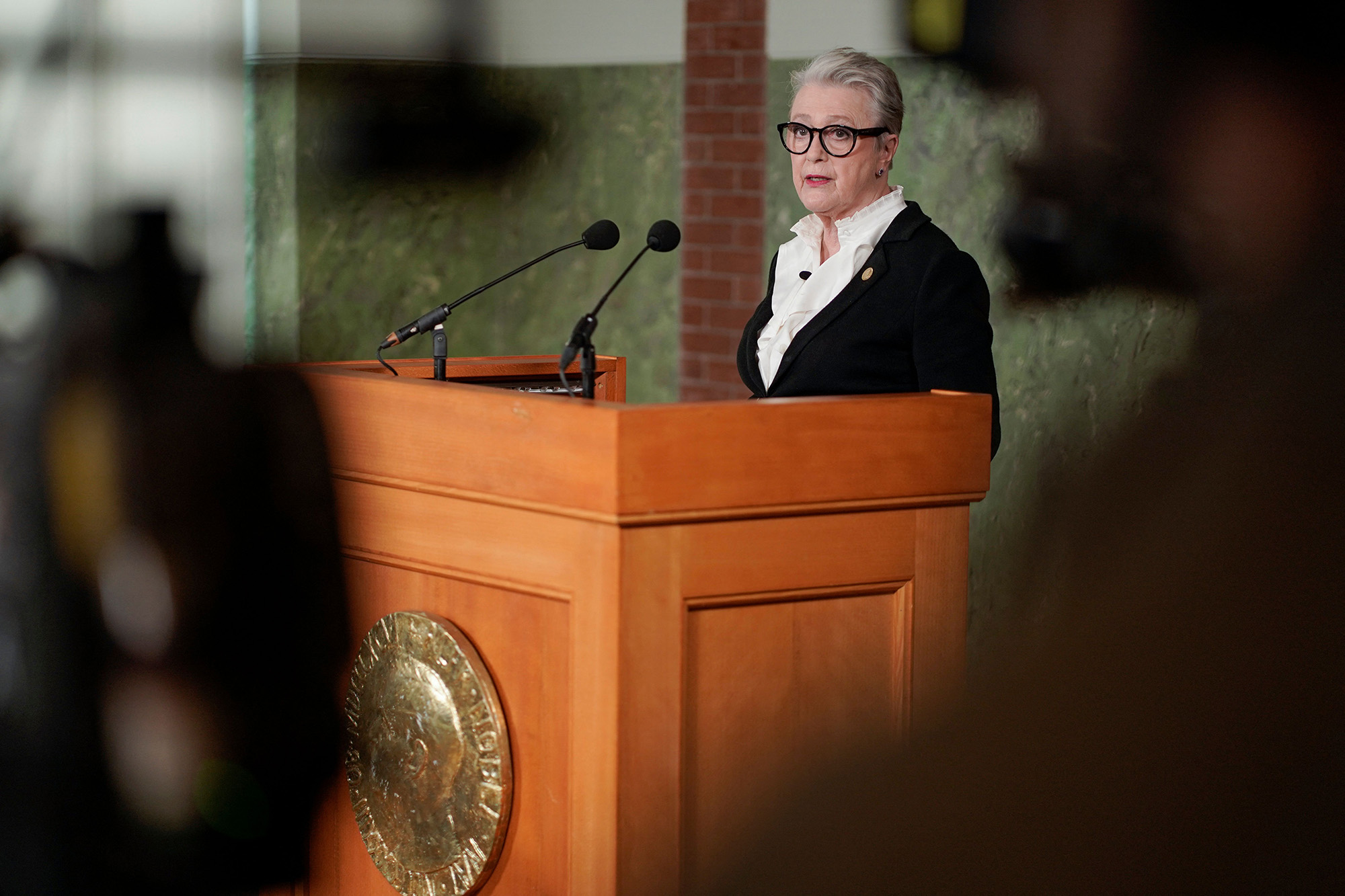
The Nobel Peace Prize was awarded as Russia’s ongoing conflict in Ukraine wages on, with the war appearing to be front and center of the decisions made by the Nobel Committee.
“With this year’s #NobelPeacePrize, the Norwegian Nobel Committee wishes to honour three outstanding champions of human rights, democracy and peaceful co-existence in the neighbour countries Belarus, Russia and Ukraine,” it said on Twitter.
“With their consistent efforts in favour of humanist values, anti-militarism and principles of law, this year’s #NobelPeacePrize laureates have revitalised and honoured Alfred Nobel’s vision of peace and fraternity between nations – a vision most needed in the world today,” it added.
Kenneth Roth, the former executive director of Human Rights Watch succinctly tied some of those strings together in a tweet, referencing Russian President Vladimir Putin and his ally, Belarusian President Alexander Lukashenko:
On Putin's 70th birthday, the Nobel Peace Prize is awarded to a Russian human rights group that he shut down, a Ukrainian human rights group that is documenting his war crimes, and a Belarusian human rights activist whom his ally Lukashenko has imprisoned.”
Nobel Committee chair Berit Reiss-Andersen told reporters that the prize is "not addressing President Putin -- not for his birthday or in any other sense except that his government as the government in Belarus is representing an authoritarian government that is suppressing human rights activists. The attention that Mr. Putin has drawn on himself, that is relevant in this context, is the way civil society and human rights advocates are being suppressed -- and that is what we would like to address with this prize."
"We always give a prize for something and to somebody and not against anyone," she added.
Ukraine's Center for Civil Liberties plays "a pioneering role" in holding Russia accountable for war crimes
Ukraine's Center for Civil Liberties (CCL) was established in 2007 to promote human rights values in Ukraine, with the purpose of advancing democracy in the country.
The committee commended its work on strengthening Ukrainian civil society and the pressure that it's put on authorities to "make Ukraine a full-fledged democracy."
The group has played a key role in identifying and documenting Russian war crimes against the Ukrainian population since Russia's invasion in February, according to the Nobel committee.
"The center is playing a pioneering role in holding guilty parties accountable for their crimes," it said.
CCL said they were proud to have won the accolade on Friday.
"Morning with good news. We are proud," they tweeted, adding: "This is a recognition of work of many human rights activists in Ukraine and not only in Ukraine."
The $900,000 prize will be split three ways, with the awards presented in December
The three winners of the Nobel Peace Prize will share the prize money of 10,000,000 Swedish Krona ($900,000). They will be officially awarded to the laureates at a ceremony on December 10, the anniversary of Alfred Nobel's death.
What is Memorial, the Russian human rights organization?
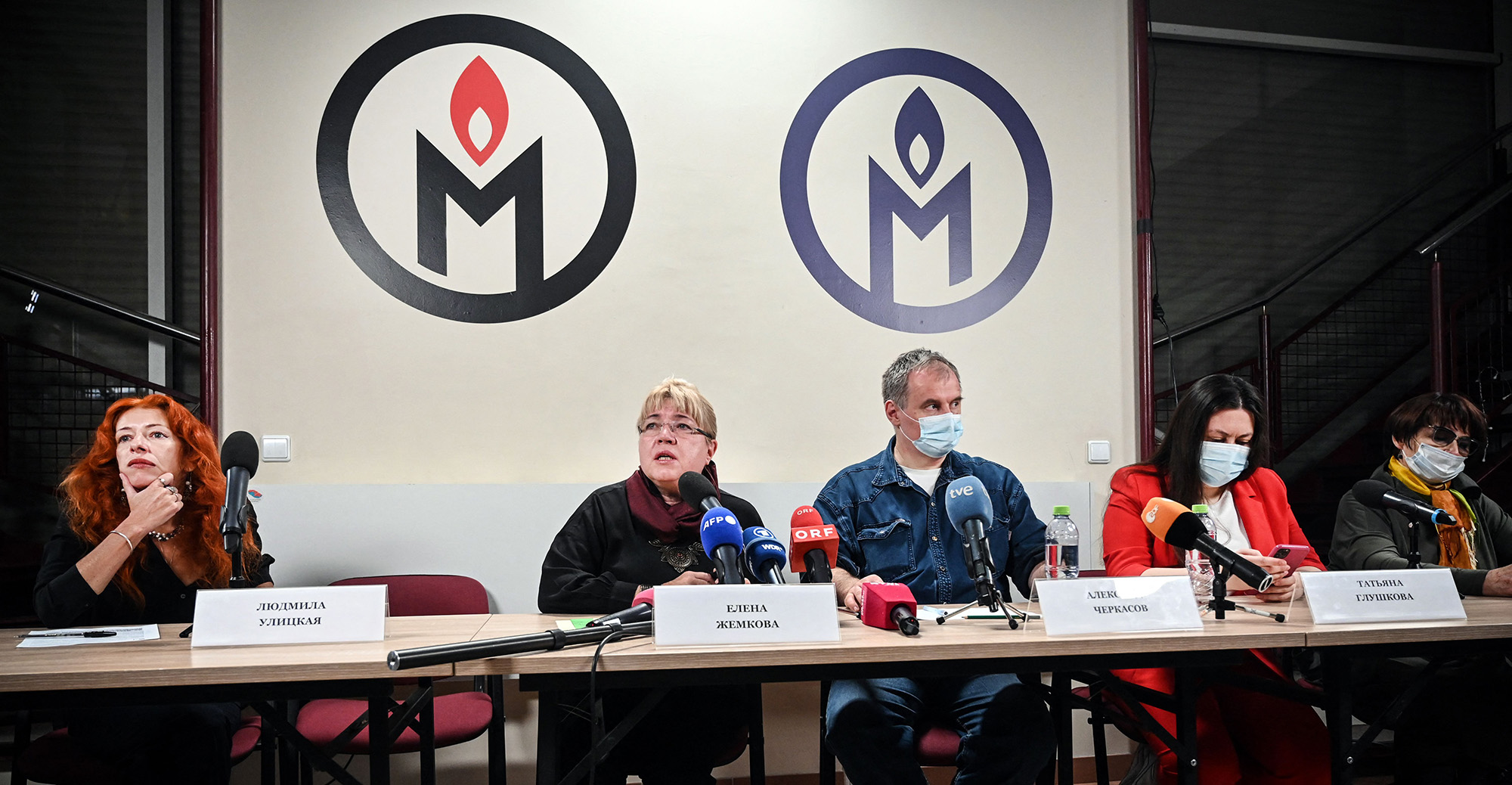
Russian human rights organization Memorial was established in 1987 by human rights activists in the former Soviet Union to expose the abuses and atrocities of the Stalinist era.
The group "wanted to ensure that the victims of the communist regime’s oppression would never be forgotten," according to the committee.
Memorial's work is "based on the notion that confronting past crimes is essential in preventing new ones," it said, noting that the group has been at the "forefront of efforts to combat militarism and promote human rights and government based on rule of law."
The Nobel committee highlighted the work of the group during the Chechen wars, during which they gathered and verified information on abuses and war crimes perpetrated on the population by Russian and pro-Russian forces.
The head of Memorial’s branch in Chechnya, Natalia Estemirova, was killed in 2009 as a result of this work, according to the committee.
Further background on Memorial:
Last December, Russia's Supreme Court ordered the closure of Memorial International.
The court ruled that the group had fallen afoul of Russia’s “foreign agent” law. But Memorial said the real reason for the shutdown was that authorities did not approve of its work.
The ruling marked the latest blow to Russia’s hollowed-out civil society organizations, which have gradually fallen victim to Russian President Vladimir Putin’s authoritarian regime.
Who is Ales Bialiatski, the Belarusian who has "devoted his life to promoting democracy"
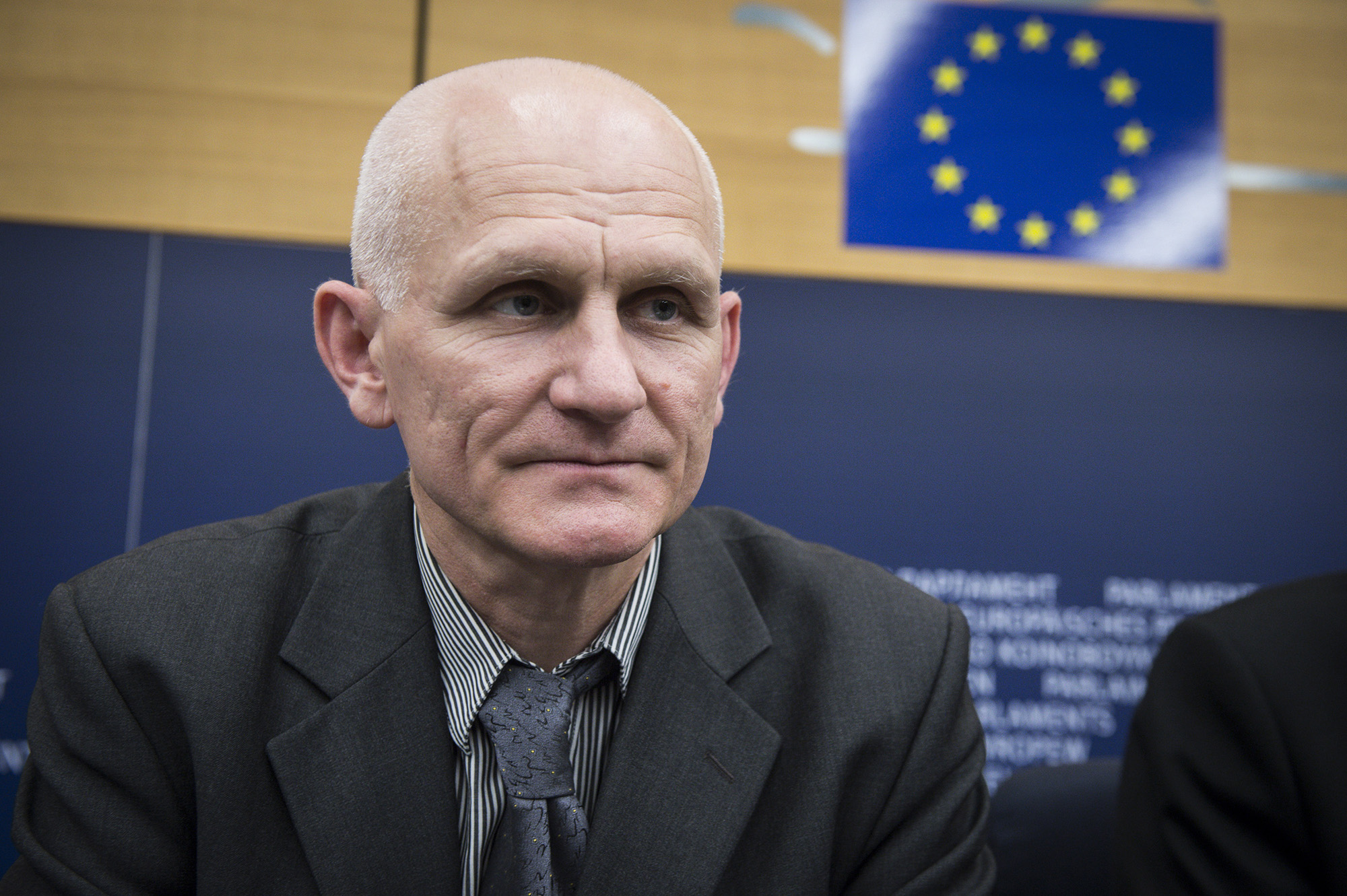
Belarusian activist Ales Bialiatski is the founder of Viasna (Spring), a human rights organization that has documented and protested the authorities’ use of torture against political prisoners.
As one of the initiators of the democracy movement that emerged in the mid-1980s in Belarus, he has "devoted his life to promoting democracy and peaceful development in his home country," according to the committee.
Government authorities have long sought to silence him. He has been detained without trial since 2020.
Despite this "tremendous personal hardship, Bialiatski has not yielded an inch in his fight for human rights and democracy in Belarus," the committee said.
Belarusian activist, Ukrainian and Russian human rights organizations jointly win Nobel Peace Prize
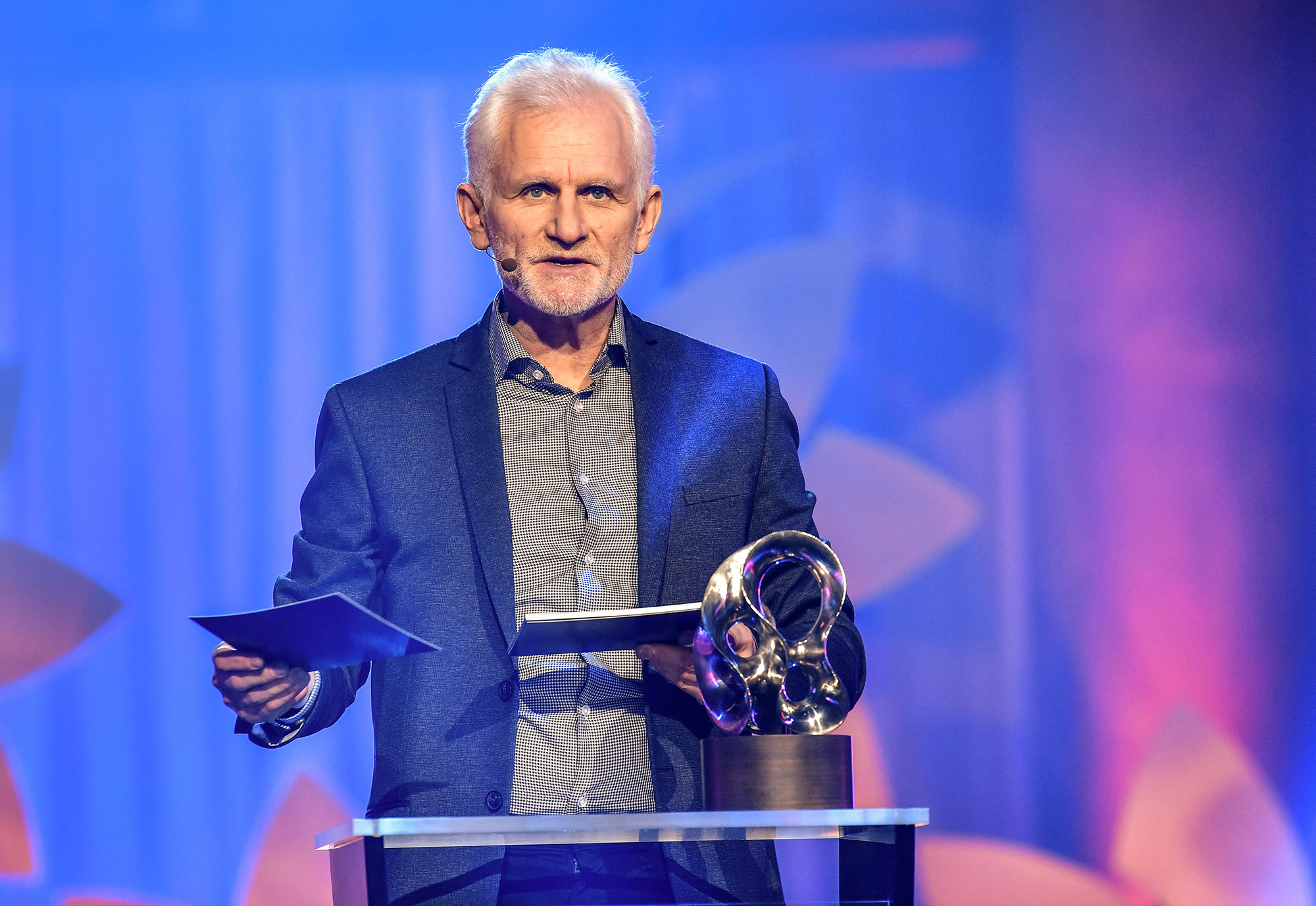
The Norwegian Nobel Committee said it chose to jointly award Belarusian human rights activist Ales Bialiatski, the Russian human rights organization Memorial and the Ukrainian human rights organization Center for Civil Liberties the prize, saying on Twitter that they "represent civil society in their home countries."
They have for many years promoted the right to criticise power and protect the fundamental rights of citizens.
They have made an outstanding effort to document war crimes, human right abuses and the abuse of power. Together they demonstrate the significance of civil society for peace and democracy."